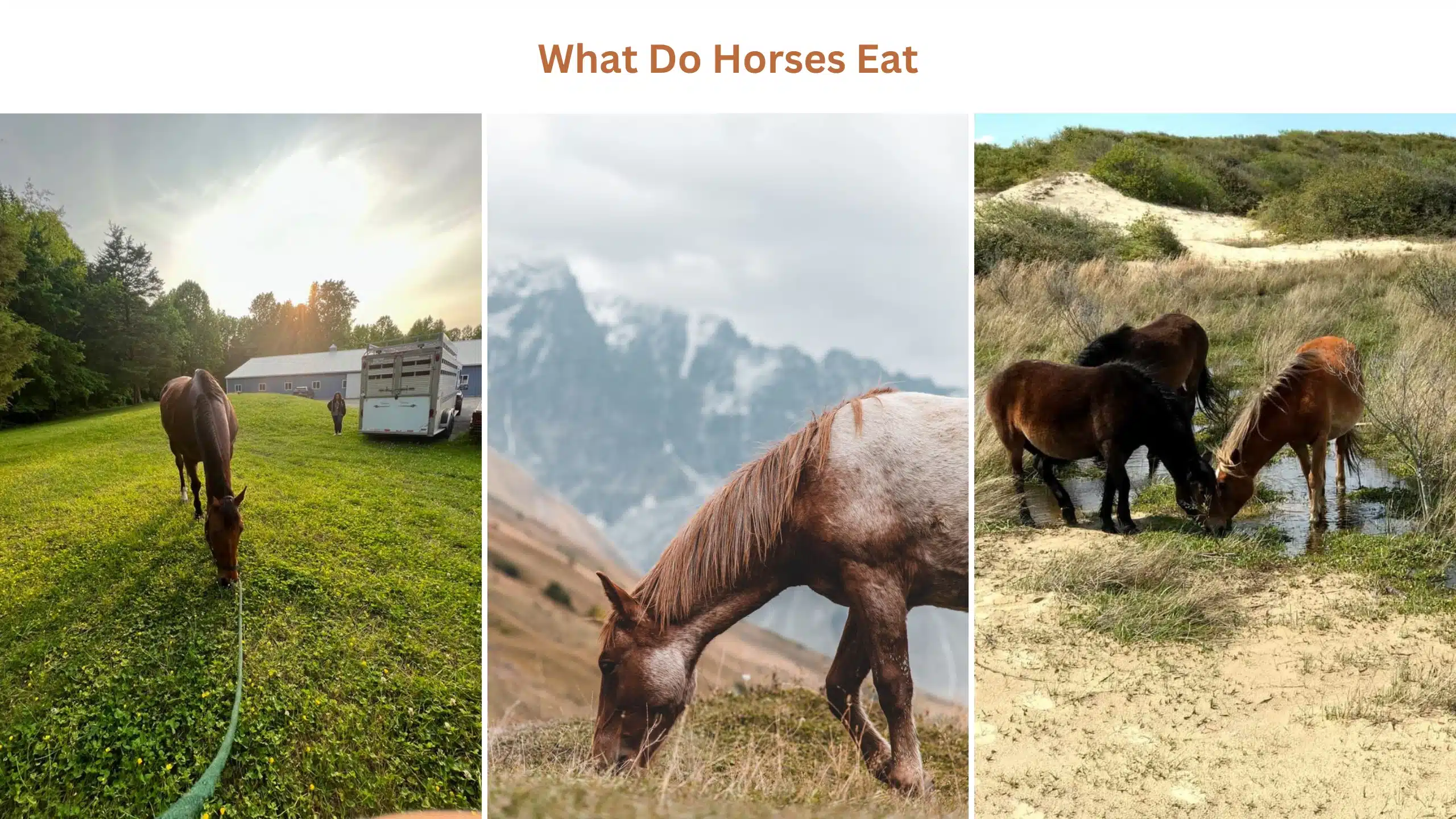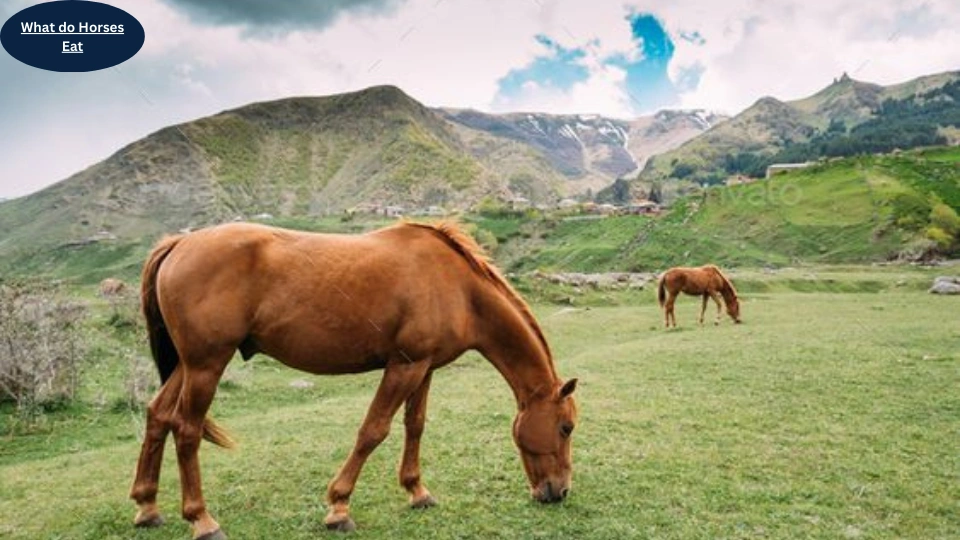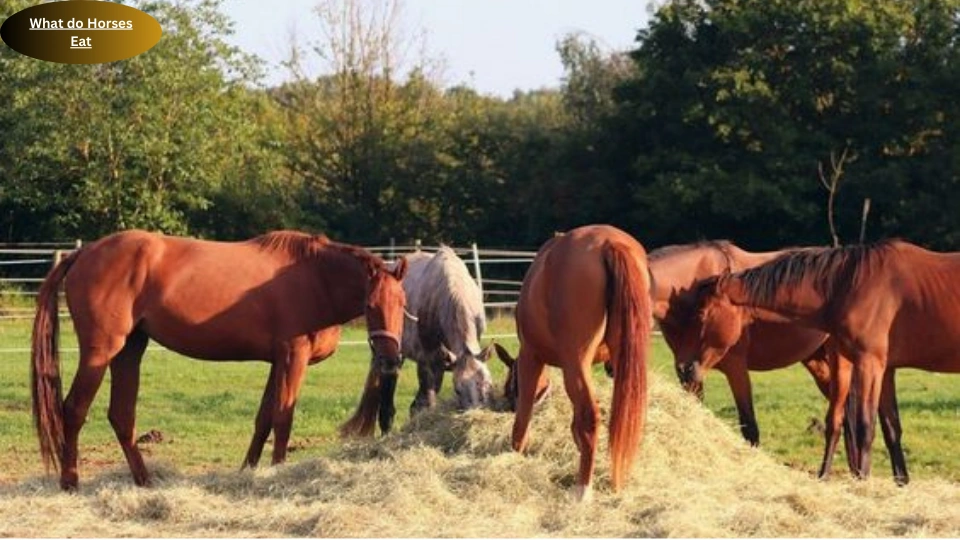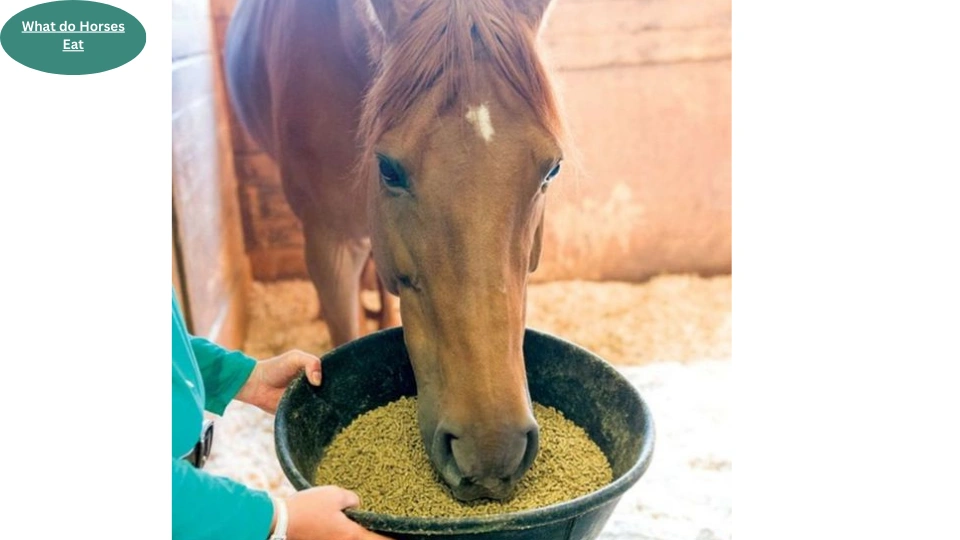Last Updated on February 9, 2024 by Aftab Tariq
What do horses eat? Horses have special dietary needs because they’re herbivores with a unique digestive system. Their long digestive tract requires a diet high in fiber, which they eat in small amounts over a long period.
Unlike humans, who eat a few big meals, horses prefer many small meals throughout the day and spend a lot of time eating.
Their main diet consists of grass, hay or haylage, and they may also have salt, concentrates, fruits, or vegetables, depending on their work routine and available feed.
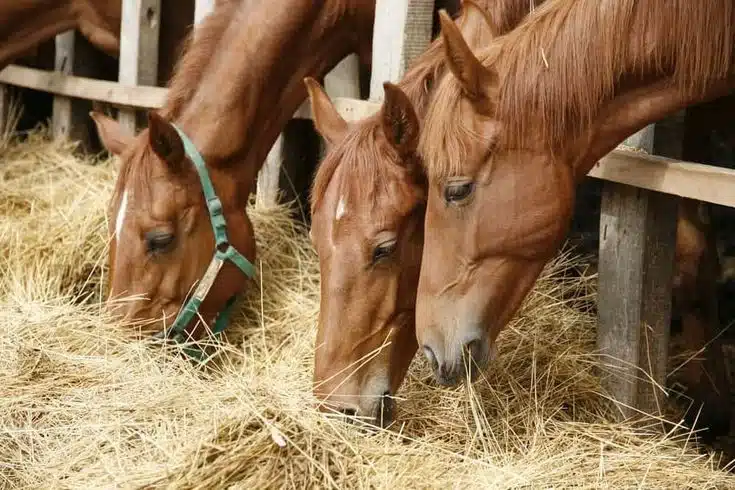
To keep your average adult horse healthy, check out our Horse Feeding Guide. If you notice changes in your horse’s eating habits or weight, consult your equine vet.
Also, be cautious about making sudden changes to your horse’s feed, as it can lead to illness, especially colic. If you need to adjust the diet, do it gradually over two to four weeks, and consider seeking advice from an equine nutritionist.
What do horses eat? Concentrates are a blend of elements like grains, flaxseed, beet pulp, molasses for energy and flavor, bran, and essential vitamins and minerals. Commercial mixes can contain diverse ingredients, and feed mills may tailor concentrates to specific requirements, which is practical when dealing with a considerable number of horses. Similar to grains, concentrate mixes address nutritional gaps and offer a swift energy source. Mares in foal, nursing mares, performance horses, or those actively working often benefit from the supplementation of concentrates in addition to their diet of grass or hay. Understanding what equines can eat is of utmost importance for their well-being. A horse’s diet is the basis for its overall health and behavior. It is a fact that certain foods can be harmful, emphasizing the importance of knowing what is safe to feed by hand or as meals. Equines have specific nutritional needs, and riders or caretakers must appreciate the significance of providing the right quantities and proportions. Treating is frequent, but excessive or unsuitable treats can cause dietary imbalances and diseases. Maintaining a healthy horse diet requires knowing the proper joys. To keep your horse healthy, it’s not just about providing a varied diet with essential nutrients; it’s also vital to be mindful of what horses should avoid eating. Here’s a simple guide: Excess Fruit: While horses enjoy fruit, too much can lead to complications like colic. Cruciferous vegetables: Including cauliflower and broccoli, may lead to discomfort, so it’s advisable to provide them in moderation. Meat: Even though your horse might be curious about meat, it’s best not to include it in their diet. Horses are herbivores, and adding meat can impact their health. Dairy: Horses are lactose intolerant, so steer clear of dairy products like cheese, yogurt, and milk. Bran: Limit the use of brans, like wheat and rice bran, as they can disrupt mineral balance in your horse’s diet. Lawn and Garden Clippings: Avoid offering clippings, as some weeds can be harmful, and clippings may contain toxic pesticides. Being aware of these dietary restrictions is key to ensuring your horse stays happy and healthy. American Association of Equine Practitioners I am a dedicated content writer with more than five years of experience, particularly skilled in the art of storytelling. My writing journey commenced during my college years, where I pursued journalism and unearthed my talent for creating captivating narratives.Grains
Supplements for Comprehensive Horse Nutrition
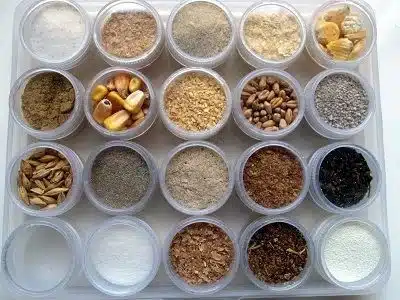
What can equines eat?
What Are Horses Unable to Consume?
How Much Food is Right for Horses?
Sources

